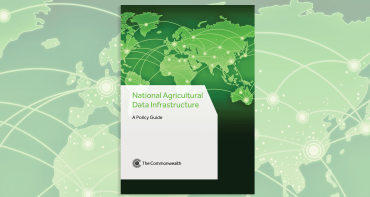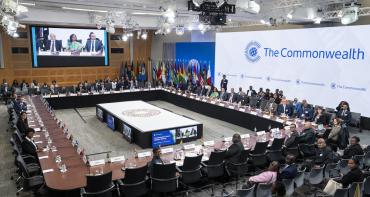Commonwealth governments have set out recommendations to look at ways to counter the risks and maximise potential economic benefits of virtual currencies.

Commonwealth governments have set out recommendations to look at ways to counter the risks and maximise potential economic benefits of virtual currencies.
This follows a two-day meeting in London last week attended by representatives from ten Commonwealth countries. Leading international experts shed light on the advancing technology used to create digital currencies, and ways in which users can carry out transactions without detection.
This raised concerns that these relatively new currencies are increasingly susceptible to criminal use, particularly with regards to the potential financing of terrorism.
Participants also looked at the possible benefits virtual currencies could offer developing economies, such as a reduction in transaction costs for remittances and micro-payments. They agreed, however, that better frameworks needed to be in place first to manage associated risks.
The forms, functions and attributes of these currencies are highly complex, borderless and ever-evolving, making it very difficult for governments and international law enforcement to carry out investigations into suspect transactions.
There are more than 500 digital currencies in existence. Bitcoin, the most commonly known, was given as an example to explain how these currencies are acquired, valued and exchanged.
One of the participants explained that value is primarily based on “faith” and “demand” within online communities who operate these systems collectively.
The only way to trace transactions is through the ‘blockchain’, which is essentially the public ledger; although developments in technology, such as the creation of Darkcoin, now allow users a greater degree of anonymity.
It was widely acknowledged that international responses to virtual currencies are disparate, including within the Commonwealth. This was clear from the different viewpoints presented by member countries during the meeting.
The representative from Singapore characterised the country’s approach as “embracing new technological innovations” - Singapore was the first country in Asia to open a Bitcoin ATM and now has eight.
Describing virtual currencies as “very concerning”, the representative from India encouraged all Commonwealth countries “to be on the same page” to develop more effective safeguards.
Representatives from member governments acknowledged the need for a broad range of legislative reforms to prevent criminal exploitation of virtual currencies.
In their final statement, they recommended preparation of technical guidance for member states in the areas of regulation and legislation, and the drafting of a report on virtual currencies to present at the next Heads to Government meeting in 2015.
The two-day Virtual Currencies Round Table was a result of a mandate issued at the Commonwealth Heads of Government Meeting in 2013 to tackle cybercrime and find ways to create safe money transfer operations.



